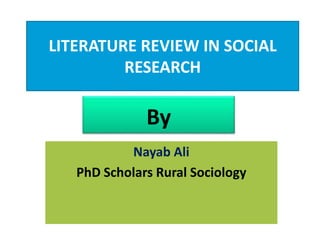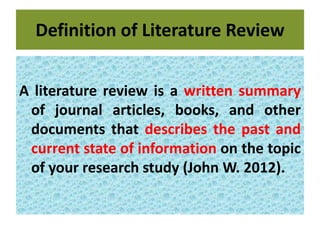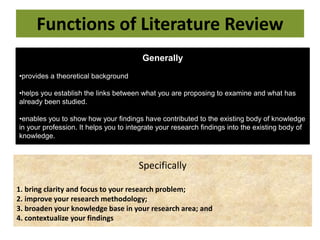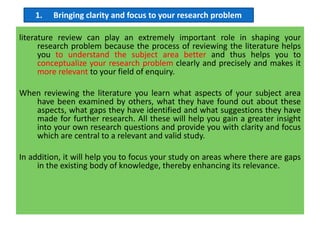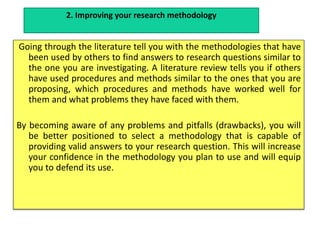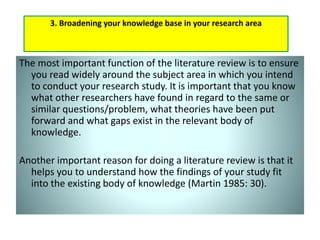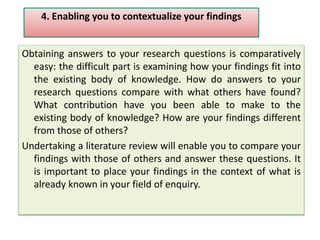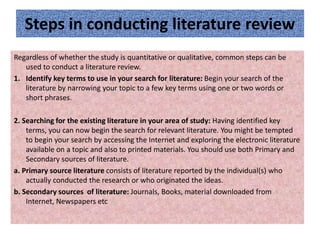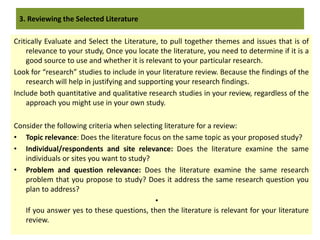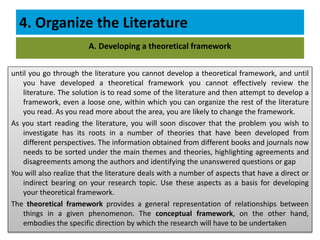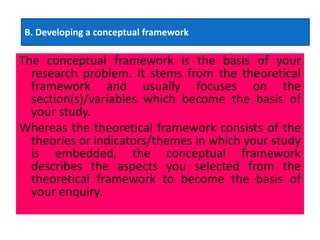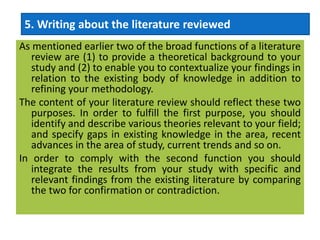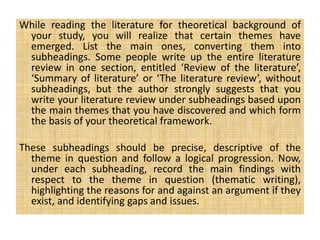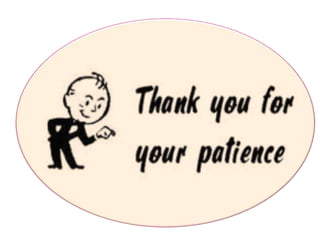The document provides information on conducting a literature review for social research. It defines what constitutes literature and a review, and outlines the main functions of a literature review such as bringing clarity and focus to the research problem, improving the research methodology, broadening the knowledge base, and enabling contextualization of findings. The document also describes the key steps in conducting a literature review including identifying terms, searching and selecting relevant literature, reviewing and organizing the literature, developing a theoretical and conceptual framework, and writing about the literature reviewed under relevant subheadings.
